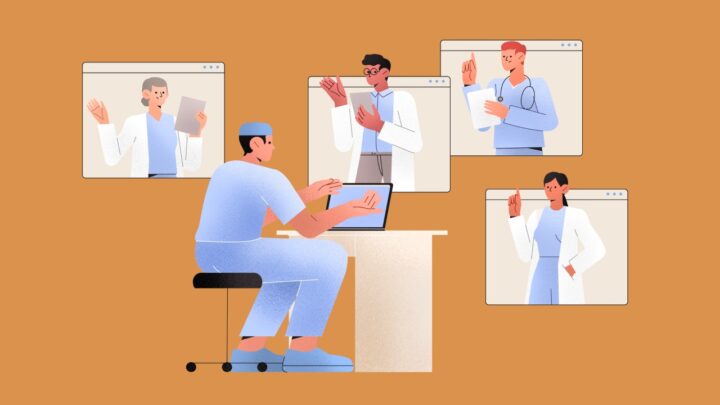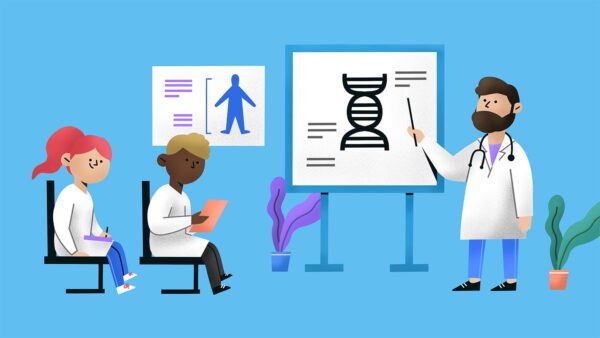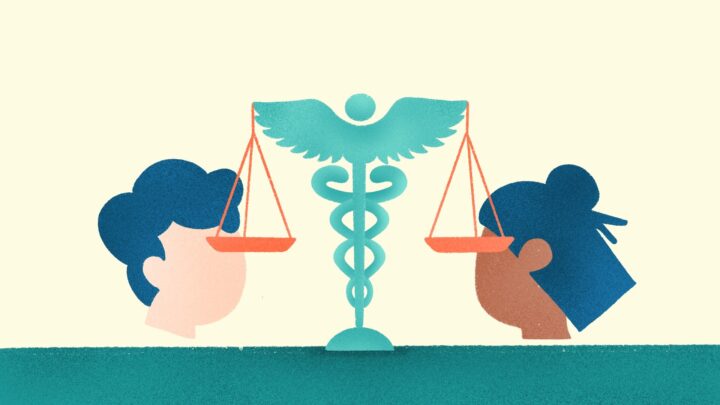
Healthcare professionals (HCPs) are uniquely positioned to serve as ambassadors for public health, bridging the gap between policymakers, healthcare systems and communities.
The World Health Organization (WHO) defines advocacy as fostering political commitment, policy support and social acceptance for development programs. Physicians’ advocacy efforts are crucial for shaping public health outcomes and ensuring policies align with real-world healthcare needs.1
However, involvement varies significantly among doctors: 21% of Sermo physicians have played a direct role in influencing public health policy, 26% have contributed to public health discourse or advocated for changes, 36% are interested in doing so but haven’t yet, and 18% have no intention of participating.2
This article examines what it means to be a healthcare ambassador, explores challenges physicians face in advocacy and outlines actionable strategies to empower doctors to make a difference.
Understanding the ambassadorial role of doctors
To gain insight into the ambassadorial role of doctors, it is important to explore the day-to-day focus of a healthcare ambassador.

What does it mean to be a healthcare ambassador?
An ambassador for healthcare serves as an intermediary between public health systems, policymakers and communities. Advocacy involves collecting information, structuring it into a persuasive case and communicating it to decision-makers and stakeholders.
Ambassadors also work to build alliances, negotiate with stakeholders and influence policy decisions through actions like:
- Presenting specific ideas or issues.
- Identifying stakeholders and building alliances.
- Collecting and disseminating credible information.
- Engaging in lobbying and negotiating actions based on mutual understanding.1
Physicians face the dual responsibility of championing public health causes while maintaining professional neutrality. As an Emergency Medicine physician notes inside the Sermo medical community, “We must advocate for a patient-centered approach, prioritizing the individual needs and preferences of each person.3”
Be the voice that shapes the future of healthcare
Your expertise as a physician can drive impactful change in public health. Join Sermo’s global community of healthcare professionals today to:
- Share your insights in discussions and polls that shape healthcare policy.
- Access tools and resources to amplify your advocacy efforts.
- Collaborate with peers to exchange strategies for improving public health.
The areas where doctors make a difference
Why are healthcare professionals important in public health advocacy?
Public health awareness campaigns
With 21% of doctors having directly influenced public health policy and 26% contributing to discourse or advocacy, their role is pivotal in shaping healthier societies.2 One Sermo Orthopedic Surgeon highlights this unique position: “Our frontline experiences provide unique insights into both the successes and shortcomings of current healthcare systems.3”
This impact is evident in global examples such as China, Kerala and Sri Lanka, where public agencies prioritized equitable development and education. These efforts resulted in balanced rural-urban resources, improved living standards and enhanced food security, demonstrating how proactive healthcare policies can drive meaningful change.1
One of the most visible areas of physician influence is in public health awareness campaigns. These efforts focus on critical issues like vaccination, disease prevention and healthy living, with 30% of surveyed doctors identifying public health awareness as their most significant area of impact.2 For example:
- Sermo member, General Practice: “Vaccines are essential for the population, and it is necessary to raise awareness of their effectiveness, action and protection.3”
- Sermo member, Internal Medicine: “As a gastroenterologist and recent epidemic of Hepatitis A, I try my best to educate the general population regarding sanitation and the importance of drinking boiled water and clean food.3”
By making use of their expertise and community trust, HCPs can become public health leaders. Public health ambassadors can become instrumental in educating the public and advocating for preventive measures, laying the groundwork for healthier populations and more robust public health policies.
How can physicians influence healthcare policy?

Doctors’ expertise enables them to draft and advocate for impactful policies.
Survey data shows 26% of physicians view policy shaping as a key area of influence.1 A Sermo General Practitioner succinctly states, “HCPs should definitely influence healthcare policy.3”
One recent example of doctors successfully shaping health policy is in the UK. In 2007, public health doctors successfully advocated for a smoking ban in enclosed public spaces, reducing air pollution in bars by 93%, hospital admissions for heart attacks by 1,200 and exposure to secondhand smoke, especially among children. This landmark policy shows how doctors’ advocacy can improve public health and significantly shift population behaviors.4
Advocacy for funding and resources
Securing funding is essential for advancing healthcare systems and research initiatives. Physicians play a crucial role in advocating for increased resources, and ensuring equitable access to healthcare.
A Sermo Orthopaedic Surgeon warns what can happen if that money isn’t available, “There will be less and less funding for public health and… those who have the money will seek treatment, the others will give up on seeking treatment.3”
Having voices like these advocating for the right money to go to the right areas of public health can make a difference in maintaining a healthy population.
Promoting preventative care initiatives
Preventative care reduces the burden of disease and improves population health outcomes. With 31% of surveyed physicians identifying this as their most significant area of impact, the importance of education on preventative measures is clear.
A Sermo member and family medicine practitioner reflects, “As a PCP, I am very partial to preventative medicine—super important for patients to be educated about how to keep themselves healthy and avoid preventable diseases or complications!3” In the long run, doctor advocacy for these programs can help to keep them running.
Challenges doctors face in advocacy
What barriers do healthcare professionals face in influencing public health?
Lack of time and resources
Physicians cite heavy workloads, often due to a shortage, as a major barrier to advocacy, with 42% identifying this as the biggest obstacle.
A Sermo Internal Medicine physician explains, “Our primary responsibility lies in direct patient care, leaving minimal time to engage in the labyrinth of policy advocacy.3”
Therefore, providing institutional support, such as dedicated time or staff for advocacy efforts, can help alleviate this burden and empower physicians to engage more effectively.
Limited access to policymakers
Structural barriers hinder engagement with decision-makers, with only 12% of Sermo doctors having regularly been asked to contribute to policy creation by policymakers at a local and national level.2
A Sermo member for General Practice remarks, “Not really consulted unless you go out of your way to do it yourself.3”
Hence, building stronger networks and creating streamlined platforms for physician engagement with policymakers can help bridge this gap.
Insufficient training in public health advocacy
18% of doctors feel a lack of training limits their ability to advocate effectively.2
One Sermo Psychiatry specialist advocates for change: “I think there should be more options for healthcare policy training for HCPs.3”
Offering accessible training programs on public health advocacy can equip physicians with the skills needed to drive policy change confidently.
Balancing advocacy and professional neutrality
Concerns about maintaining neutrality deter some physicians, with 9% citing this as a barrier.2
A Sermo Pediatrician observes, “It’s a topic that risks becoming political… it’s not for me.3”
Therefore, having institutions support doctors by creating clear guidelines that align with professional ethics can help physicians navigate these challenges while maintaining their neutrality.
Strategies used by doctors to enhance influence in policy and public health
How can healthcare professionals balance advocacy with their practice?

Building advocacy skills through training and mentorship
Only 10% feel adequately supported,2 so workshops, training programs and mentorship can equip physicians with the skills needed to advocate effectively. A General Practitioner on Sermo emphasizes, “We must be trained efficiently to influence public health policy and make our access to policymakers easier.3”
Strengthening access to policymakers and advocacy platforms
26% believe there’s little to no advocacy support,2 so physicians can build strategic and supportive connections through professional associations, doctors advocacy groups, community boards and public health initiatives.
These collaborations not only give support but amplify influence, as highlighted by a Sermo member for Pediatrics: “Doctors should collaborate with political forces to improve the health of citizens since they know the preventive measures to implement to improve public health.3”
Leveraging collaborative efforts with public health organizations
Partnerships with organizations like the APHA or WHO strengthen advocacy efforts. A Oncology specialist in the community urges, “We have to step up and be involved in rewriting the future of the healthcare system.3” So healthcare institutions should forge partnerships and points of contact within these organizations so their doctors can build connections for advocacy.
Looking forward: empowering doctors in public health advocacy
Strategies to support physicians in health advocacy:
Creating supportive structures for advocacy
28% of doctors report limited support hinders their advocacy efforts.2 Therefore, institutions must provide physicians with the resources, time and platforms needed for effective advocacy.
To improve advocacy outcomes, institutions should focus on guidelines set out by the WHO:
- Timely and credible information dissemination.
- Training stakeholders in interpreting data.
- Strategic planning and communication.1

Encouraging collaboration across disciplines
Interdisciplinary partnerships between physicians, public health officials and policymakers ensure diverse perspectives in policymaking.
A Pediatrician on Sermo notes, “It is essential that health policy and economic decisions are made by actively practicing physicians who regularly see patients.3”
Giving room for these kinds of collaborations across disciplines can make policies better, ensuring they are informed by real-world clinical experience and diverse expertise.
Joining Sermo’s Community and poll data
Sermo’s physician community offers a unique platform for collective advocacy. By sharing best practices and amplifying physician voices, these types of digital platforms can unify physician voices, creating a powerful collective force to address systemic public health issues and influence policy.
Your takeaway
Physicians play a vital role as ambassadors for public health, leaning on their expertise and experience to influence policies and improve healthcare outcomes.
While challenges such as limited time, access and training persist, actionable strategies like building advocacy skills, fostering collaborations and creating supportive structures can empower doctors to drive meaningful change.
By embracing patient advocacy as a physician, doctors can shape a more equitable, patient-centered healthcare system for all.
Join Sermo to shape the future of healthcare
As a physician, your insights and expertise are invaluable in shaping public health policies and driving meaningful change.
Join our global community of physicians today to:
- Participate in impactful discussions and polls that influence healthcare policy.
- Access resources and support to enhance your advocacy efforts.
- Collaborate with peers and share best practices for improving public health outcomes.














